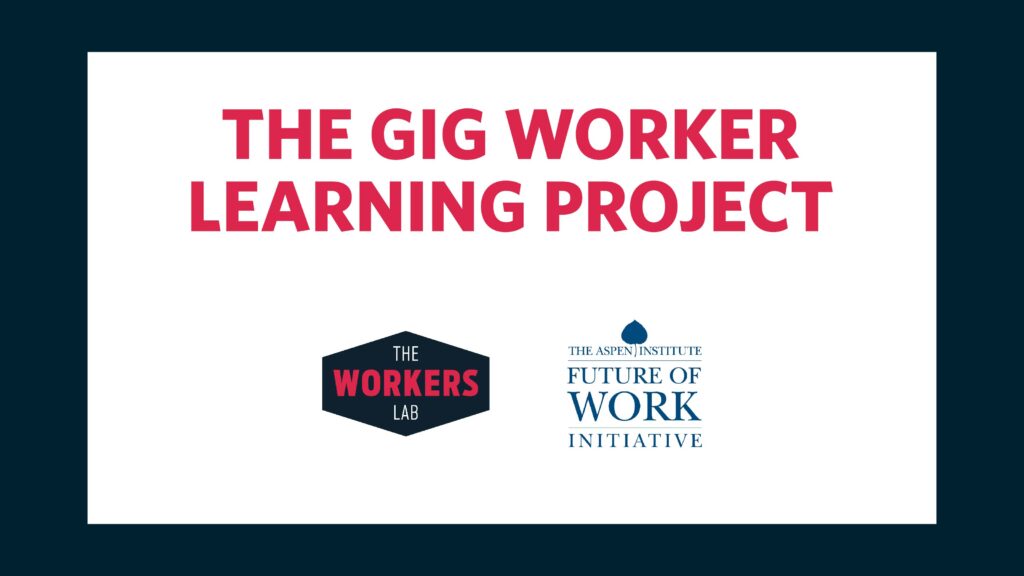March 23, 2023 / Building Bridges
What do gig workers really want?
We’re thrilled to support new participatory research to find out.
Althea Erickson
Althea Erickson is the Director of the Sol Center for Liberated Work, a program of the Center for Cultural Innovation. Previously, Althea was the Vice President of Global Government Affairs and Impact at Etsy, and Advocacy & Policy Director at Freelancers Union.
For several years now, the conversation about gig work and the future of work has been hampered by the lack of good data.
Current measurements of the gig workforce are notoriously inconclusive and contradictory. Existing studies rely on conflicting definitions and overlapping terms (e.g., separating out or collapsing freelancers, contract workers, independent workers, itinerant workers, gig workers, etc.) that result in findings so disparate, they undermine the data’s usefulness and credibility.
Existing research also fails to capture the full diversity of gig workers across sectors. So often, the conversation focuses on app-based workers, but fails to consider informal workers, farm workers, street vendors, arts workers, and any number of other categories of non-traditional work who ALSO lack the benefits and protections tied to full time employment.
Moreover, existing research fails to uncover what workers say they need and what solutions they want. Ultimately, such data is necessary, not only to anchor any new effort to deliver benefits and protections outside of employment, but to build the political power that gig workers need to win them.

That’s why we’re thrilled to announce Sol Center’s first grant, to support the Gig Worker Learning Project, a participatory research project by The Workers Lab and the Aspen Institute Future of Work Initiative, seeking to understand gig workers’ needs and the solutions that will impact them most. The first phase of the project, which took place over 2022, included early stakeholder outreach and a landscape scan of existing gig workers research. The second phase will rely on participatory research methodology to develop a foundational understanding of gig workers’ most pressing challenges and identify solutions that workers feel would impact them personally.
Participatory research methods differ from traditional ones by positioning research subjects as collaborators and owners of the research process and data. In this, the Gig Worker Learning Project doesn’t just start with excluded and marginalized workers; it puts them in the driver’s seat of research design, data collection, dissemination, and data ownership. The team will also build a cross-sector community of leaders, researchers, and worker organizations committed to gig and contract worker-centered knowledge, who can amplify findings and collectively frame their work from the perspective of gig workers.
Finally, and perhaps most importantly, the project will build infrastructure for power building across worker groups through a Participatory Research Toolkit that equips gig worker organizations with tools to collect ongoing data on workers’ lives. This data will bolster each organization’s ability to advocate on behalf of its members with policymakers, supporting their efforts to build political power. It will also form the basis of a larger national dataset about gig work, owned by gig worker groups.
In this, the project will build the infrastructure to enable cross-sectoral collaboration around a shared agenda for gig work, one rooted not in the perspectives of powerful interest groups, but in the perspectives of workers themselves. To the extent that the project will help create more open space in the debate, it will also equip worker organizations to fill it.
We couldn’t be more excited to support this project. Learn more about the work here!


